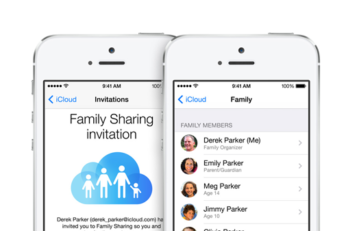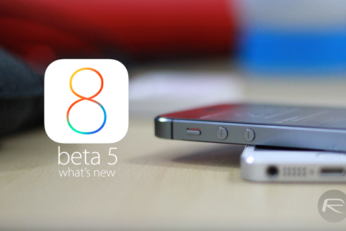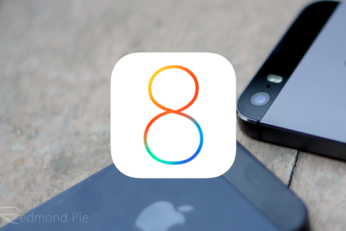Not so long ago, it became apparent that Apple would be rolling out a Family Sharing feature for its customers, allowing families and groups of people to share certain apps even if they're operating under different Apple IDs. It makes a great deal of practical sense, as well as saving money on the part of the consumer, and although it won't apply to every single app residing over at the Cupertino's Store, Apple has divulged a few more details on the subject.
As we move closer to the final release of iOS 8, the changes in the beta releases have started to get more subtle and less striking. And while today’s fifth beta release does come with changes, but they’re not as big as the previous ones.
AgileBits, the well-known Canadian development company behind the extremely popular 1Password suite of apps, has today officially lifted the cover on its 1Password app extension for apps developed with Apple's upcoming iOS 8 SDK. The official introduction of a powerful new set of developer tools at this year's Worldwide Developer Conference not only reignited the passion within the world of iOS, but also paved the way for developers like AgileBits to extend the functionality of existing software to provide additional power to users. The new extension will finally make it possible for third-party developers to integrate 1Password automatic login into their own iOS 8 apps.
iOS 8 is certain to grace our iPhones, iPads and iPod touches this fall, and the new operating system is just around the corner from the looks of it. Thanks to Apple’s extensive beta testing period, all the bugs in the upcoming software are being ironed out (hypothetically, at least), while some others merit the incremental releases that we see in the form of decimal point updates.
Traditionally speaking, Apple has generally favored releasing new versions of iOS and OS X on a staggered basis rather than bombarding users with upgrades at the same time. The inclusion of the impressive Continuity features that were unveiled at this year's Worldwide Developer Conference had led some corners to believe that iOS 8 and OS X Yosemite would be made available to the public at the same time this fall, but according to those familiar with Apple's plans, that doesn't seem to be the case.
If you happen to be a European iPhone user then it looks like you'll have some additional power to look forward to when it comes to using your device on a foreign network when travelling. The fourth beta of iOS 8, which was circulated to registered developers on Monday, contains a new "EU Internet" option that is accessible directly through the native Settings app, allowing those travelling in the European Union to have greater control over when the device can, and can't connect to potentially chargeable Web services.
The voice-to-text dictation in iOS has always been one of those features that people either use extensively, or have never even noticed. Those that do make heavy use of dictation have long had one main complaint though, and that's been about the way their voice is converted to text.
With every new beta release of iOS 8, Apple slips in a few surprises here and there, which improves the overall functionality of the mobile OS. And iOS 8 beta 4 is no different, and features a bunch of noticeable changes. Jump past the break to see what’s new!
With iOS 8, Apple is finally opening avenues to app developers that were previously restricted territory, allowing accessing to certain APIs like the system-wide extensions, Touch ID and keyboards, making it possible for apps to be better integrated throughout the system rather than remain in their isolated silos, and thus making possible an experience that’s similar to the freedom that you get on Android, iPhone’s largest competitor.
When Apple took to the stage at the Worldwide Developers Conference last month, we knew that there would be some big iOS-related announcements as part of the keynote. But whilst we'd already gathered quite an insight into HealthKit and such, we didn't foresee the opening up of several key areas of the platform to third parties. As well as bringing widgets and offering developers the chance to do more with Siri, the Cupertino company finally came through and brought third-party keyboard support, and given how the AutoCorrect had become a bit of a running joke, the announcement did not arrive too soon.





